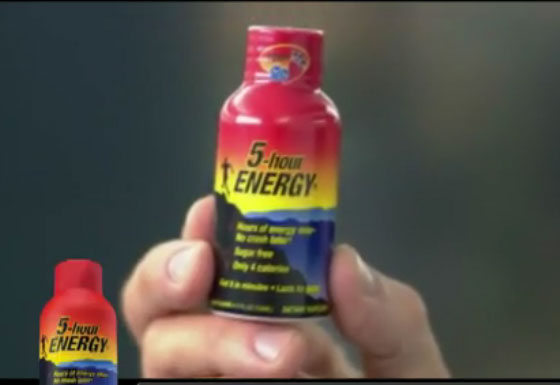Can Energy Drinks Cause Miscarriages?

While an energy drink has been connected with a case of "spontaneous abortion," according to some news reports, experts say whether caffeine can trigger miscarriage is still uncertain.
About 90 incident reports linking the energy drink 5-Hour Energy with injuries or health conditions have been filed with the Food and Drug Administration over the last three years, including one case of miscarriage, the New York Times reported Thursday (Nov. 15). However, the reports do not say whether the energy drink actually caused any of these conditions.
For years, researchers have investigated whether caffeine might pose a miscarriage risk, but study results have been mixed.
Most evidence suggests that consuming less than about 300 milligrams of caffeine, or about three cups of coffee daily, does not increase the risk of miscarriage, said Dr. Mark Klebanoff, a perinatal researcher at the Research Institute at Nationwide Children's Hospital in Columbus, Ohio.
"Keeping yourself to 300 mg a day is a good precaution" for pregnant women, Klebanoff said. (5-Hour Energy is not recommended for use by pregnant women.) [5 Health Problems Linked to Energy Drinks.]
However, the effects of consuming extremely large amounts of caffeine in a short period of time has not been researched, and needs more studies, said Elizabeth Triche, a pediatric epidemiologist at Brown University's Alpert Medical School. This type of consumption would be possible with a few shots of 5-Hour Energy — while the bottles do not list the amount of caffeine the product contains, Consumer Reports testing found the shots to contain 215 mg of caffeine each.
Uncertain link
Get the world’s most fascinating discoveries delivered straight to your inbox.
Although some studies have found a link between caffeine consumption and an increased risk of miscarriage, these studies cannot prove that caffeine causes miscarriages.
—Abortion laws by state: https://reproductiverights.org/maps/abortion-laws-by-state/
—For questions about legal rights and self-managed abortion: www.reprolegalhelpline.org
—To find an abortion clinic in the US: www.ineedanA.com
—Miscarriage & Abortion Hotline operated by doctors who can offer expert medical advice: Available online or at 833-246-2632
—To find practical support accessing abortion: www.apiarycollective.org
Pregnant women commonly experience aversions to certain foods during pregnancy, and many coffee drinkers report losing their taste for coffee during pregnancy, Klebanoff said. So it could be that this aversion is a marker of a healthy pregnancy, Klebanoff said. In other words, women who continue to drink coffee might be at increased risk for miscarriage for reasons other than the caffeine consumption itself, he said.
In addition, in many studies that linked miscarriage to caffeine consumption, researchers interviewed women after their miscarriage. But the event could have affected how clearly women remember their coffee consumption, Klebanoff said. Those who have had miscarriages might put more effort into trying to remember what happened during their pregnancy than those who did not have miscarriages.
Risk of energy drinks
It's known that caffeine can cross the placenta, but it's unclear how the chemical might increase the risk of miscarriage, Klebanoff said.
Some studies on animals have found that extremely high doses of caffeine are teratogenic — they can cause mutations in the DNA of a fetus, leading to miscarriage, Triche said. It's not clear what level of caffeine, if any, would cause this effect on humans, Triche said.
Having a miscarriage after drinking an energy drink would not be enough to implicate the drink as the culprit.
"These energy drinks are pretty commonly consumed, and miscarriage is a common event," Klebanoff said. "Without knowing more of the details, it would be tough to know if it did or didn’t have anything to do with the miscarriage."
Pass it on: Consuming less than 300 mg of caffeine a day does not appear to increase the risk of miscarriage.
Follow Rachael Rettner on Twitter @RachaelRettner, or MyHealthNewsDaily @MyHealth_MHND. We're also on Facebook & Google+.
This article was updated on August 4, 2022 by Live Science contributor Alice Ball following the Supreme Court's decision to overturn Roe v. Wade on June 24, 2022. This decision eliminated the constitutional right to abortion that was established by the 1973 court case and later affirmed by a 1992 case called Planned Parenthood of Southeastern Pennsylvania v. Casey.

Rachael is a Live Science contributor, and was a former channel editor and senior writer for Live Science between 2010 and 2022. She has a master's degree in journalism from New York University's Science, Health and Environmental Reporting Program. She also holds a B.S. in molecular biology and an M.S. in biology from the University of California, San Diego. Her work has appeared in Scienceline, The Washington Post and Scientific American.


